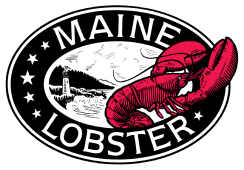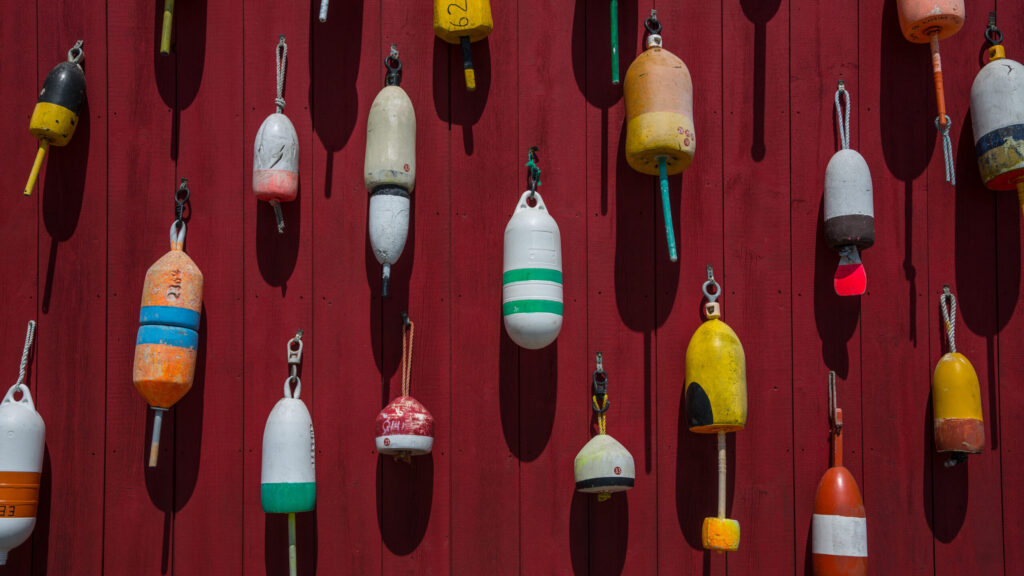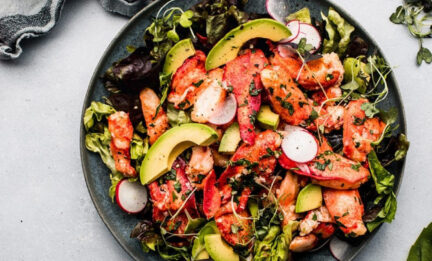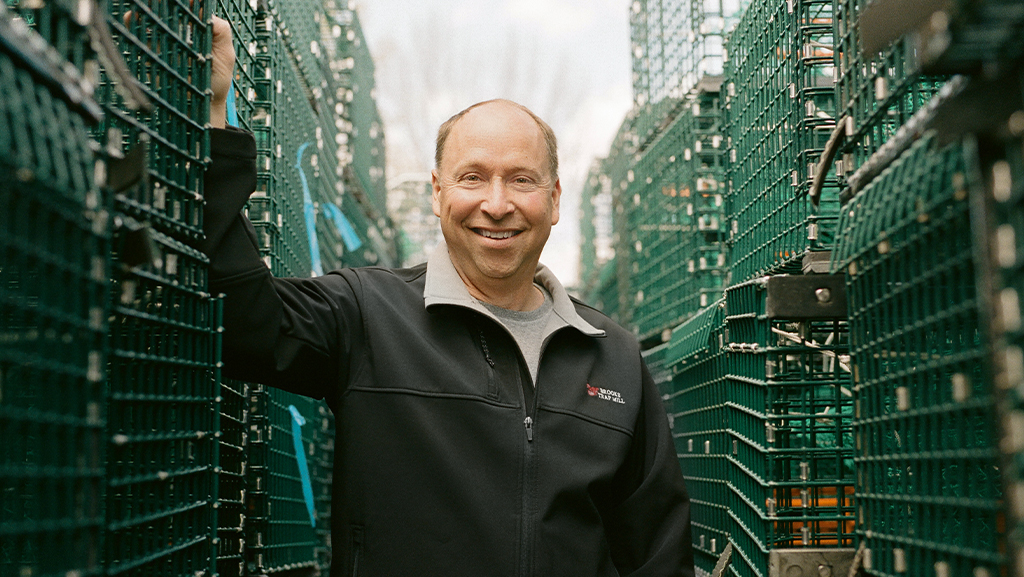
By his late teens, making lobster traps had become so commonplace for Stephen that he could practically build one – either wooden or wired – with his eyes closed. He was, after all, a member of the Brooks family, a name in Maine that has become known for lobster traps.
Stephen’s grandfather, Michael Brooks, founded the trap sawmill in 1946 to supply the wood for the town’s wooden lobster traps. He eventually handed the reins to the next generation of Brooks men, where they continued his work. Karl Brooks, Stephen’s father, went a step further and focused the business on building lobster traps.
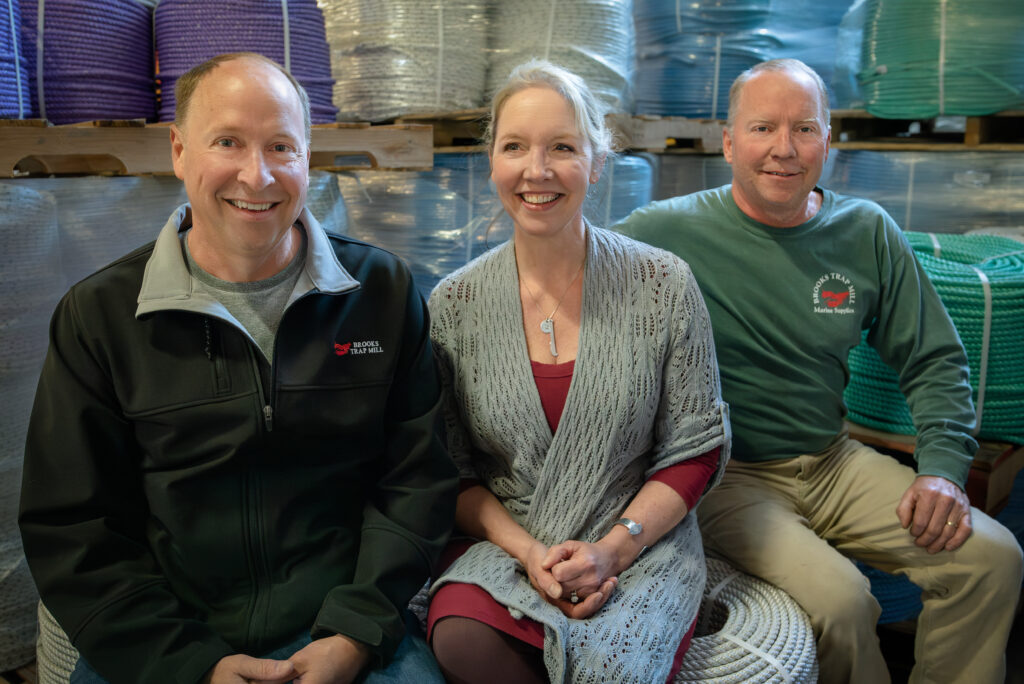
“My dad wasn’t a lobsterman by trade. He was a psychology professor,” said Stephen. “But that didn’t slow him down. In addition to wooden traps, he started building wire traps and turned Brooks Trap Mill into a one-stop shop. Lobstermen across the region started to come to us for all their lobster gear.”
Stephen and his siblings, Julie and Mark, became intimately familiar with the lobster trap mill, working weekends and building traps together.
“It was our everyday life,” said Stephen. “Even during our younger years, we’d spend our weekends running through the mill in a giant game of hide-and-go-seek.”
Through osmosis and summers of working alongside their dad, the three eventually learned the family business, each focusing on a different aspect. For Stephen, it’s managing relationships with customers. For Julie, it’s overseeing the finances. For Mark, it’s managing employees and purchasing.
“I’ve spent my life working with the people who are closest to me,” said Stephen. “Whether it was sitting in the shop with my dad or grabbing lunch with my siblings, I’ve always felt incredibly lucky to be a part of a family-run business. There’s nothing like family.”
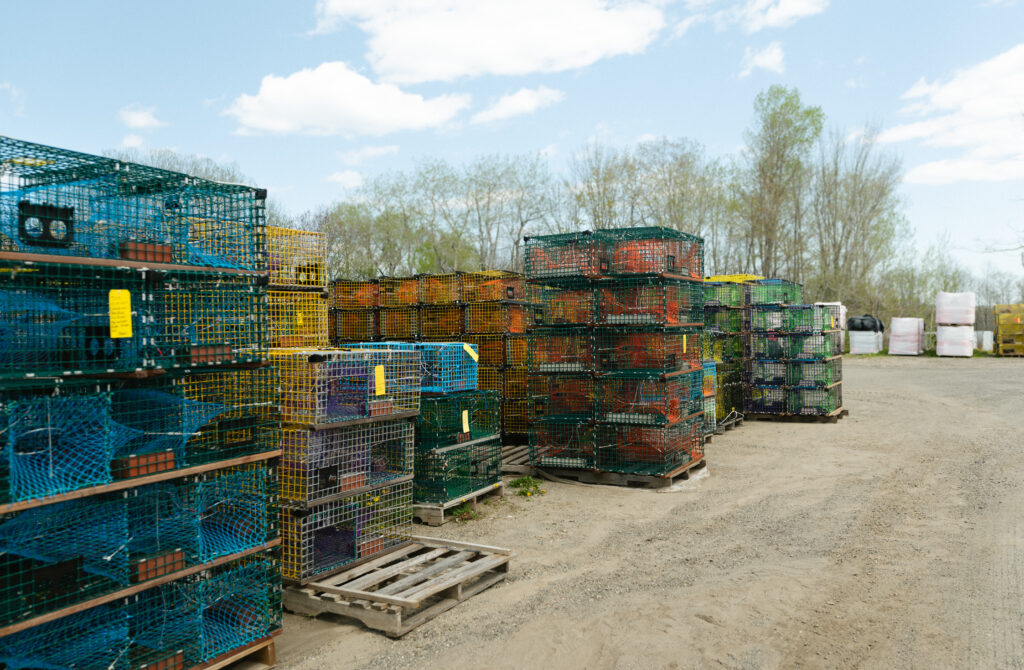
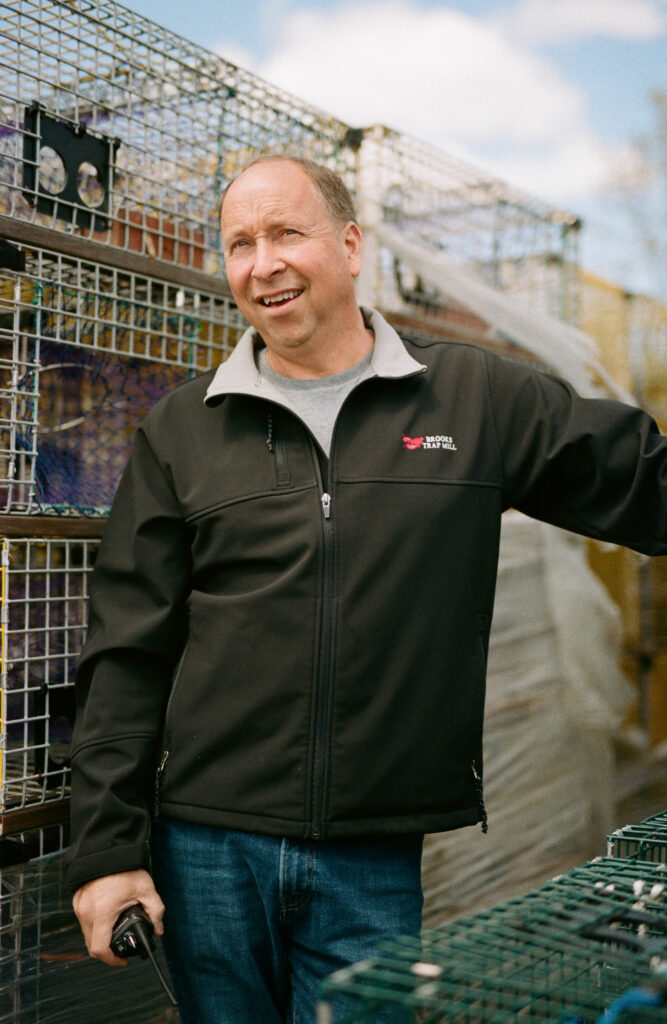
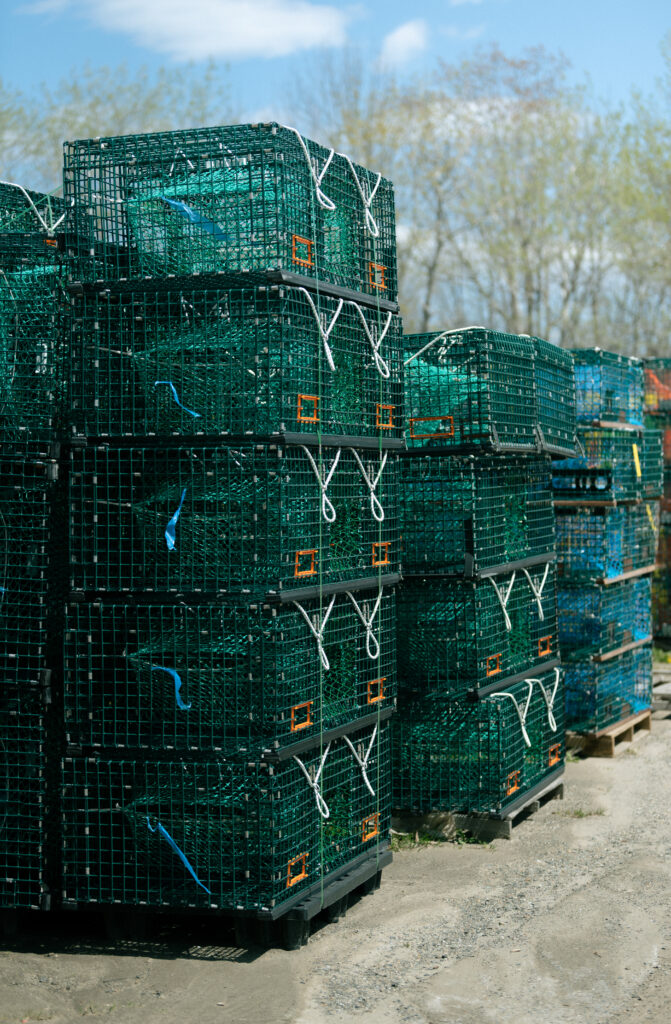
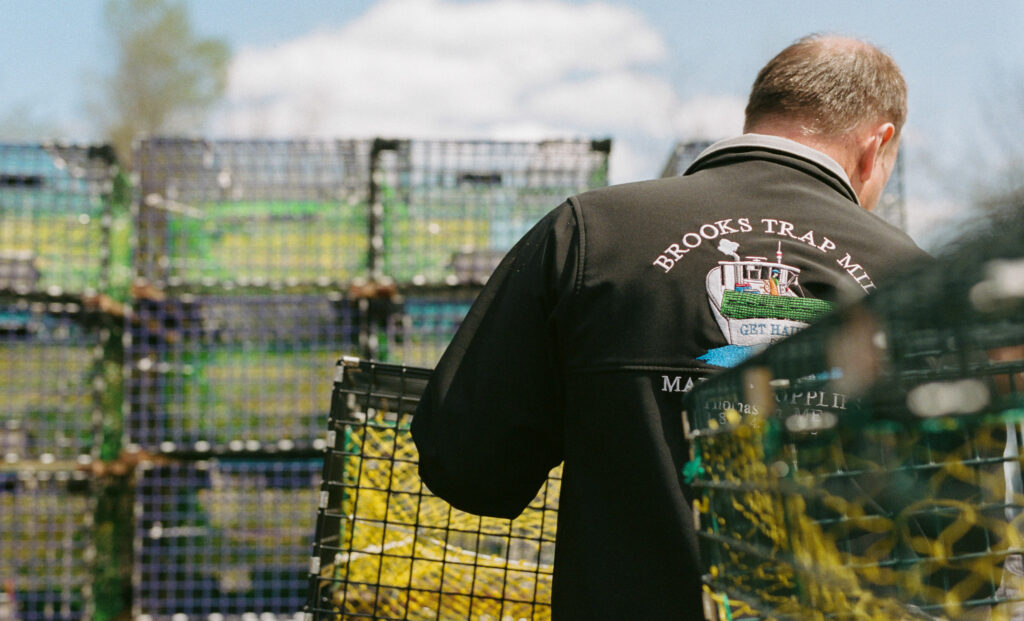
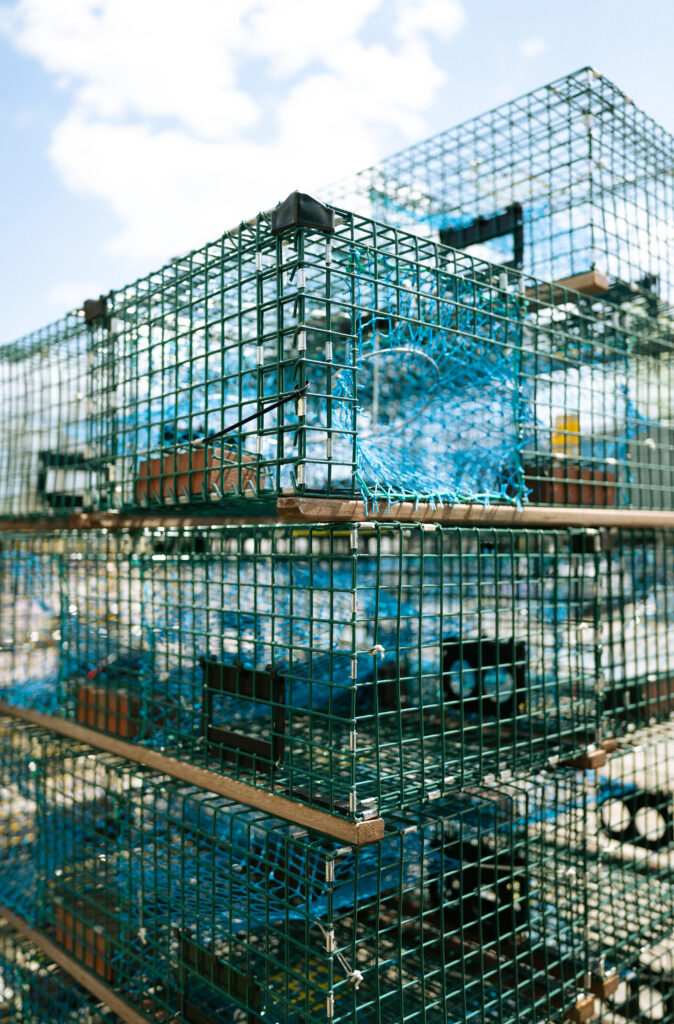
And while Stephen and his siblings know there’s no way to fill the shoes of their father and grandfather, they have tried to usher the business into a new age. As the industry has faced increased regulation, they’ve helped lobstermen navigate new sustainability measures. In addition to producing lobster traps, Brooks Trap Mill now sells whale-safe sinking rope, uses biodegradable packaging and even installed solar panels to run their operation with a lighter environmental footprint.
“Our customers have come to expect Brooks Trap Mill to be a partner,” said Stephen. “My father saw to that and his father before him. Lobstermen are some of the hardest-working people I know, and I’m proud to continue my family’s legacy of being a partner in all they do.”
What is your favorite way to eat Maine Lobster?
“My favorite way to eat Maine Lobster is on a toasted roll with butter.”
What is the best part of living in Maine?
“My favorite part of living in Maine is getting the chance to be on the ocean in the summer and smell the ocean air.”
What makes you proud to go to work every day?
“I’m proud to be a part of a third-generation family business and continuing to grow the business with my siblings.”
What is special to you about Maine Lobster or the Maine Lobster fishery?
“It’s incredible to know how sustainable it is and to know how many people around the world absolutely love eating Maine Lobster.
Meet The People Behind the Fishery
A diverse group of people passionate about Maine and the lobster industry.
